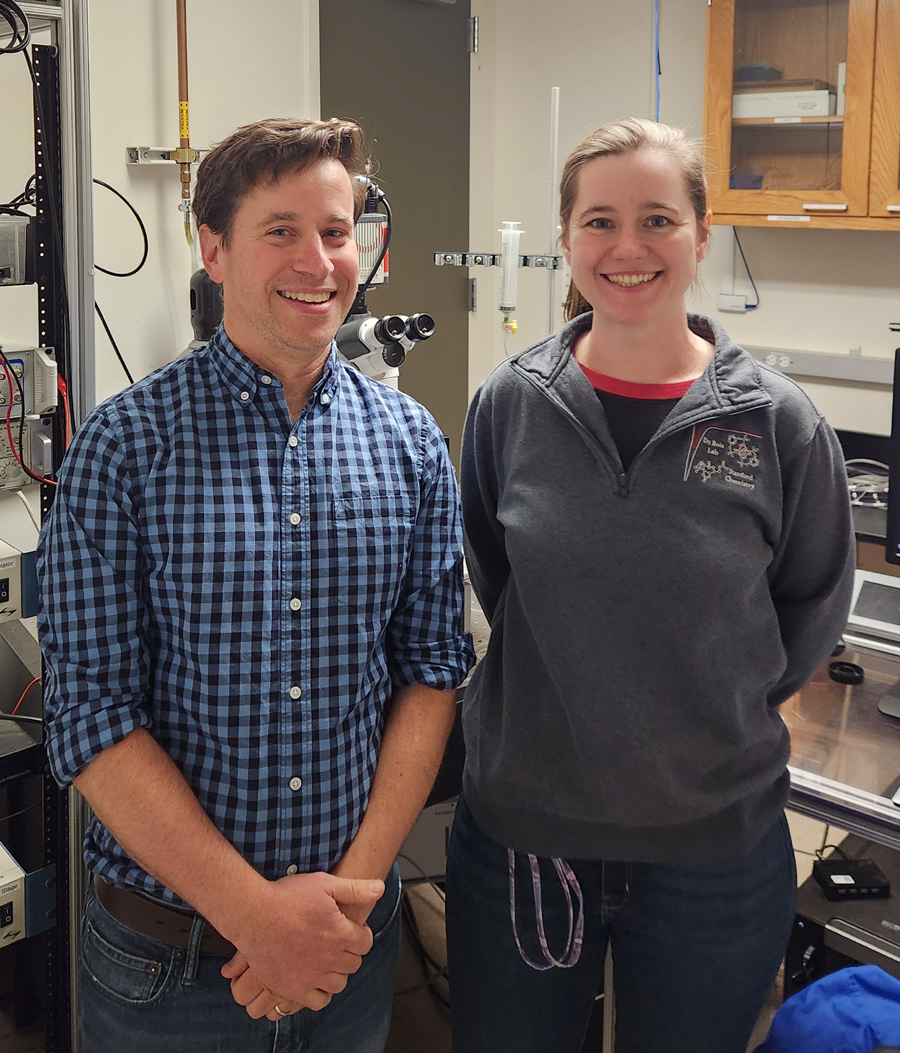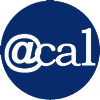
Partnering for Postdoc Success:
The MCB Postdoc Mentoring Program
By Kirsten Mickelwait

When Anna Elleman arrived at MCB in 2021 with a PhD in chemistry from Stanford, she quickly learned the difference between being a graduate student and becoming a postdoc. “In grad school, you have your cohort, you take classes with different professors, you have your friends in various labs, and there are defined milestones where you present your work to your committee,” she says. “You have a whole community helping you to develop ideas, showing you new techniques, or suggesting where you might go next. You have a real sense of the options that are out there for you.”
Postdocs, on the other hand, are hired solo, without a cohort. They report to their advisers, the PIs, in a single lab—it can be both professionally and socially isolating. That’s why MCB created the MCB Postdoc Mentoring Program: a resource designed to support the professional development of postdocs by pairing them with faculty mentors outside of their primary labs.
Launched in 2023, the rotating program has engaged 52 faculty and more than 100 postdocs. Typically, each PI mentor and postdoc mentee meet informally once per semester to address specific questions and issues on the postdoc’s mind. Mentees are also invited to attend the mentor’s lab meeting, including the option to give one group meeting each year in the mentor’s lab.
Upon coming to Berkeley, Elleman shifted her focus to neuroscience with some chemistry aspects. Her academic work is split between the labs of Richard Kramer and Stephen Brohawn, both professors of neurobiology. Through the mentoring program she was paired with Evan Miller, an associate professor of chemistry and molecular and cell biology who has a joint appointment with the College of Chemistry.
Elleman and Miller were already acquainted, as he had collaborated with Kramer and Brohawn in the past and had already let Elleman use equipment in his lab for one of her projects. Mentoring was an opportunity to formalize that existing relationship. “It's nice to have feedback from someone rooted in organic chemistry, but who’s applying those kinds of tools in a more biological setting, which is closer to what I enjoy doing,” Elleman says.
Miller and Elleman agree that getting the perspective of someone outside your own lab is enormously helpful. “Within your own lab, you can make assumptions and communicate in shorthand,” Miller says. “But, whether you get a job in academia or industry, you'll eventually have to explain your science to people outside your specific field.”
Elleman appreciates the chance to ask more abstract questions about pursuing a scientific career. “What do you do if you don't have a paper yet, but it's time for you to go out in the market?” she asks. “Or what if you aren't sure that your ideas are going to work? How do you present that to people who are in a different field? How do you convince someone in biology that this chemistry project is going to be the best thing ever?” Running such concerns by someone farther along the professional pipeline is always useful.
For his part, Miller sees benefits from the mentor’s perspective. “It's a great way to hear about what other labs on campus are doing,” he says. “It’s also really positive for some of my junior trainees to be able to interact with Anna and broaden the horizons of my group.”
Such a win-win dynamic was the vision for the MCB Mentoring Program. “A robust volunteer-run program like this one can only be successful through the dedication of remarkably community-spirited individuals,” says Douglas Koshland, chair of postdoc affairs and professor of molecular and cell biology. “And the sustained excellence of this program speaks to the amazing postdocs who are attracted to Cal.”
Learn more about MCB’s resources for postdocs: mcb.berkeley.edu/academic-programs/postdoc-resources
Back to Main Spring 2024 Newsletter Page
| Connect With Us! | ||||
 MCB X |
 LinkedIn Postdocs, PhDs, or Undergrads |
 Cal Alumni Network |
 Give to MCB |
|
